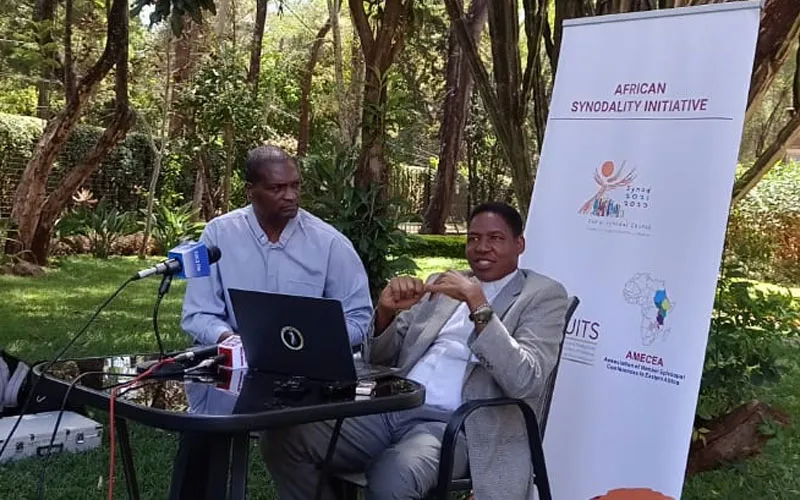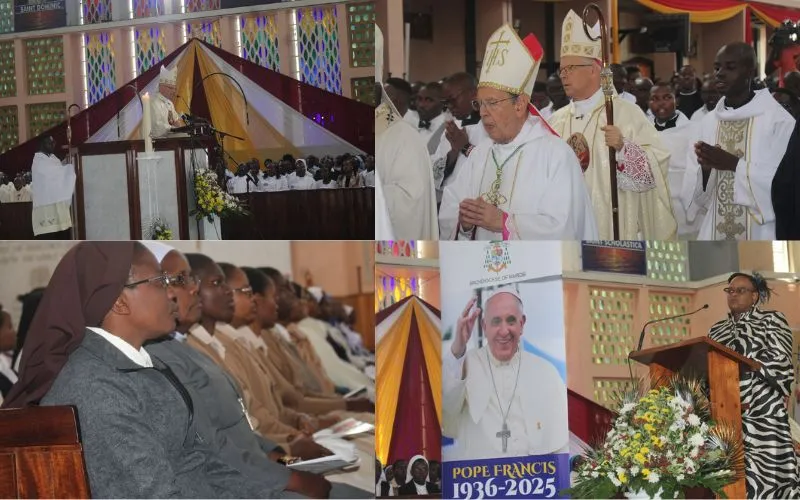Members of the African Team on Synodality also met to rework the African Synodal Document in order to enrich it with the new elements collected.
Their other objective was to receive an update from the Catholic Bishops’ Conferences in Africa on the current situation of the regional delegates to the Continental Assembly.
Fr. Simbine highlighted the challenges encountered in the synodal conversations, saying, “Some difficulties were noted especially in understanding the synod process and how to use the method of spiritual conversation. However, as time passes, especially after this second session, some improvements are visible.”
Participants at the working session also presented the draft of the African Synod Document, which they said is “still work in progress.”
Fr. Simbine who has been moderating the African Team on Synodality underscored the need for participants in the continental Synodal conversations “to deepen ever more the understanding of the Synodal process.”
(Story continues below)
This, he noted, they could do by reading and reflecting on the DCS and appreciating all the issues raised in the document from the African context, and applying the Spiritual Conversation Method, which focuses on the quality of one’s capacity to listen as well as the quality of the words spoken.
“All the participants shall return home with the mission of preparing the delegates for the Continental Synodal Plenary Assembly in Addis Ababa, in order to go there already familiar with the Document of the Continental Stage and the use of the Spiritual Conversation Method,” he said.
The member of Clergy of Mozambique’s Xai-Xai Diocese lauded the Catholic media for ensuring that all the people of God are aware of what is happening during the continental process of the Synod on Synodality.
This story was updated with corrections on 30 January 2023. Some of the notable corrections from the original version published on 25 January 2023 include: “African Synodality Initiative (ASI)” replaced with the “Symposium of Episcopal of Conferences of Africa and Madagascar (SECAM)”; “African Plenary Assembly” replaced with “African Continental Synodal Assembly”; “members of ASI” replaced with “members of African Team on Synodality”; and “regional secretaries of the Synodality initiative” replaced with “Catholic Bishops’ Conferences in Africa”.
Agnes Aineah is a Kenyan journalist with a background in digital and newspaper reporting. She holds a Master of Arts in Digital Journalism from the Aga Khan University, Graduate School of Media and Communications and a Bachelor's Degree in Linguistics, Media and Communications from Kenya's Moi University. Agnes currently serves as a journalist for ACI Africa.








